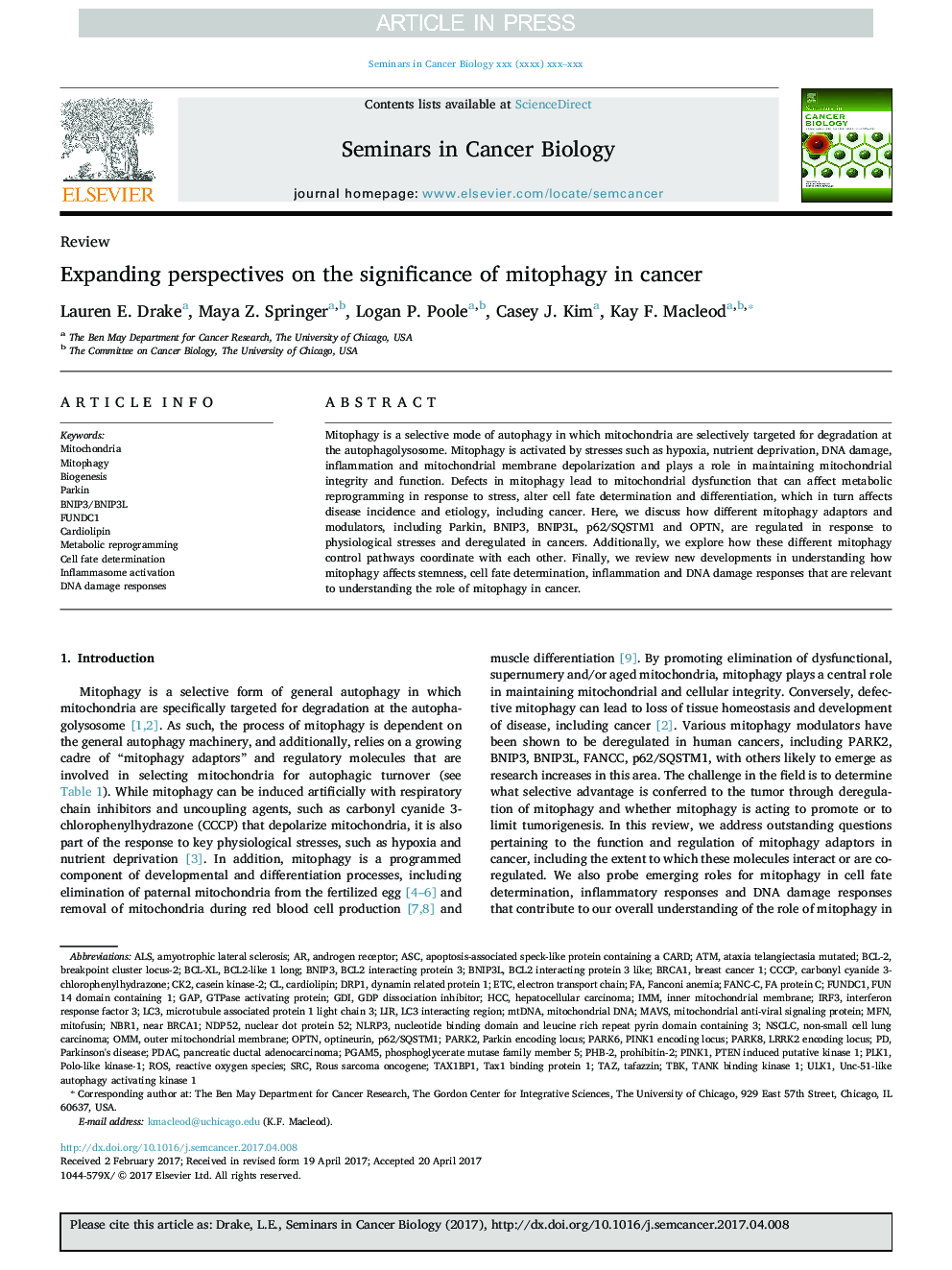| Article ID | Journal | Published Year | Pages | File Type |
|---|---|---|---|---|
| 8361842 | Seminars in Cancer Biology | 2017 | 14 Pages |
Abstract
Mitophagy is a selective mode of autophagy in which mitochondria are specifically targeted for degradation at the autophagolysosome. Mitophagy is activated by stresses such as hypoxia, nutrient deprivation, DNA damage, inflammation and mitochondrial membrane depolarization and plays a role in maintaining mitochondrial integrity and function. Defects in mitophagy lead to mitochondrial dysfunction that can affect metabolic reprogramming in response to stress, alter cell fate determination and differentiation, which in turn affects disease incidence and etiology, including cancer. Here, we discuss how different mitophagy adaptors and modulators, including Parkin, BNIP3, BNIP3L, p62/SQSTM1 and OPTN, are regulated in response to physiological stresses and deregulated in cancers. Additionally, we explore how these different mitophagy control pathways coordinate with each other. Finally, we review new developments in understanding how mitophagy affects stemness, cell fate determination, inflammation and DNA damage responses that are relevant to understanding the role of mitophagy in cancer.
Keywords
Nbr1SRCPINK1PARK2IRF3LC3CCCPBNIP3Drp1PGAM5MAVSBcl-xLMFNCK2Polo-like kinase-1OPTNDNA damage responsesTAZNLRP3LC3 interacting regionOMMGDITBKPTEN induced putative kinase 1Tax1BP1Bcl-2FUNDC1PLK1ASCBNIP3LPARK8NDP52ULK1ataxia telangiectasia mutatedMitochondrial DNAGTPase Activating ProteinHCCROSPancreatic ductal adenocarcinomaPDAC یا pancreatic ductal adenocarcinomaamyotrophic lateral sclerosisimmGDP dissociation inhibitorMetabolic reprogrammingLIRALSParkinson's diseaseBiogenesisTafazzinTANK binding kinase 1Cell fate determinationATMinner mitochondrial membranemtDNAelectron transport chainNSCLCbreast cancer 1GAPphosphoglycerate mutase family member 5outer mitochondrial membraneInflammasome activationMitophagyMitofusinMitochondriaETcPark6Parkindynamin related protein 1microtubule associated protein 1 light chain 3apoptosis-associated speck-like protein containing a CARDBRCA1Cardiolipinnon-small cell lung carcinomaHepatocellular carcinomacasein kinase-2Carbonyl cyanide 3-chlorophenylhydrazoneFanconi anemiaReactive oxygen speciesAndrogen Receptor
Related Topics
Life Sciences
Biochemistry, Genetics and Molecular Biology
Biochemistry
Authors
Lauren E. Drake, Maya Z. Springer, Logan P. Poole, Casey J. Kim, Kay F. Macleod,
